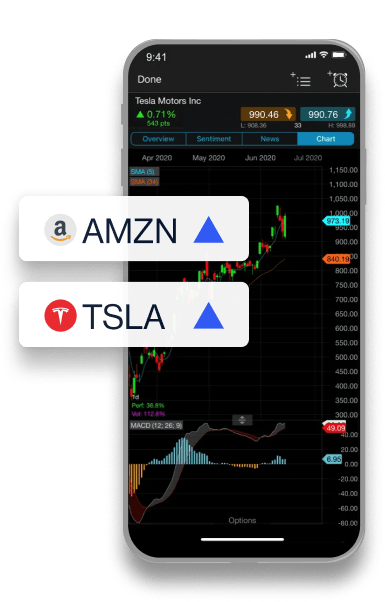React early to market movements, breaking news and global events that impact the world's most influential companies.
Go long or short on 250+ US stocks*, nearly 24 hours a day, 5 days a week:
Manage your existing positions between trading sessions
Access our full range of order types for a seamless trading experience
Get extended access to 250+ stocks, including the Magnificent Seven
* Spreads may widen dependent on liquidity and market volatility




